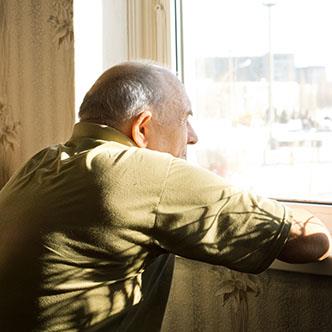
Loneliness is bad for the heart, based on a recent study that found heart patients who live alone and have no one to talk to had poorer outcomes than those with more social support.
Presented this month at the European Society of Cardiology’s annual nursing congress, this study looked at the impact of social support on heart health. It included nearly 13,500 Dutch patients treated across five heart centers, who were asked questions about their physical and mental health, as well as their lifestyle and social networks.
Researchers used this data to see if there was any significant link between social support and outcomes.
All participants had existing heart conditions, such as heart disease, heart failure and an abnormal heart rhythm called arrhythmia. The average age of participants was 65 and two-thirds were male.
After analysis, researchers found that loneliness was associated with poorer outcomes in all patients, regardless of their heart condition and even after accounting for factors like age, education and smoking status.
In fact, patients who reported having no one to talk to in times of need had roughly twice the mortality risk compared to those who had support. Individuals who felt lonely were also three times as likely to report symptoms of anxiety and depression and had a significantly lower quality of life than those who had support. Researchers also found that men with heart failure or arrhythmias who lived alone had poorer mental health than men who lived with someone.
According to authors, findings highlight the need for social support, especially in patients with existing heart conditions.
“Loneliness is a strong predictor of premature death, worse mental health, and lower quality of life in patients with cardiovascular disease, and a much stronger predictor than living alone, in both men and women,” said Anne Vinggaard Christensen, study author and PhD student at The Heart Centre, Copenhagen University Hospital, Denmark.
“Our study shows that asking two questions about social support provides a lot of information about the likelihood of having poor health outcomes,” says Vinnggaard Christensen. Those questions included “Do you have someone to talk to when you need it?” and “Do you feel alone sometimes even though you want to be with someone?”. With these two simple questions, it may be possible to identify heart patients who may face increased cardiovascular risk due to a lack of support.
Of course, authors note that individuals with poor social support may have worse health outcomes because they have unhealthier lifestyles, are less compliant with treatment, and are more affected by stressful events. However, researchers adjusted for multiple lifestyle behaviors in the analysis and still found that loneliness is associated with poorer health.
As a result, authors encourage providers to ask patients about their support system and provide resources to those who feel isolated and alone. “We live in a time when loneliness is more present,” says Vinggaard Christensen, “and health providers should take this into account when assessing risk.”